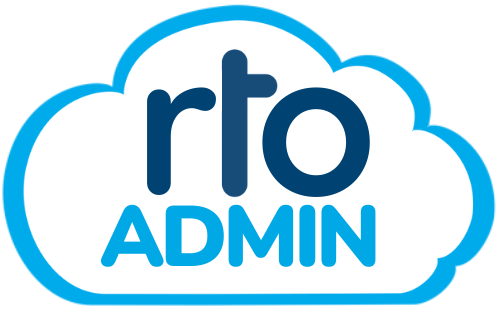Have you ever considered how your educational qualifications gain their value or recognition? In the realm of education and vocational training, particularly in Australia, understanding the role and significance of accredited courses is crucial. The world of vocational education and training (VET) can be complex, and accredited courses play a pivotal role in ensuring that the qualifications you receive are recognized both nationally and internationally.
Definition and Purpose of Accredited Courses
Accredited courses are a vital part of the vocational education and training landscape in Australia. They are custom-designed educational programs developed to fulfill specific skills gaps that existing training packages do not cover. The development and recognition of these courses revolve around strict adherence to standards set forth by regulatory bodies such as the Australian Skills Quality Authority (ASQA) or respective state regulators. Importantly, these courses are aligned with the Australian Qualification Framework (AQF), which ensures a standardized level of education across the nation.
The primary purpose of an accredited course is to ensure that the training meets precise education and industry standards. These standards safeguard the integrity and quality of the educational offerings, providing assurance to both learners and employers. For learners, an accredited course translates to a reliable and recognized qualification that enhances career prospects. For employers, it means having a workforce trained to specific and vetted competences, reducing skill gaps and enhancing productivity.
Accredited Courses vs. Training Packages
In understanding the realm of educational offerings, it’s essential to distinguish between accredited courses and training packages. Both serve the purpose of vocational training but are fundamentally different in their development and application.
Differences and Similarities
Training packages are typically government-funded and devised to address broad training needs across industries. They are generic, standardized courses developed to serve the majority of training requirements within a sector or occupation. On the other hand, accredited courses are developed by organizations or individuals to specifically target niche areas or skills inadequacies not addressed by these training packages.
| Feature | Accredited Courses | Training Packages |
|---|---|---|
| Development | Created by individuals or organizations for specific skills gaps | Developed by industry bodies to meet generic needs |
| Funding | Generally not government-funded; costs covered by course developers | Government-funded |
| Intellectual Property Rights | Retained by course developers, who license them to RTOs | No IP ownership by developers |
Despite these differences, both accredited courses and training packages share the commonality of being nationally recognized, a testament to their quality and reliability. This ensures that whether learners opt for an accredited course or a training package, they receive a qualification that holds substantial value in the job market.
Types of Accredited Courses
The diversity in vocational training is reflected in the variety of accredited courses available. These courses can lead to different levels of qualifications, generally categorized as follows:
Qualification Levels
- Certificate I to IV: These qualifications provide foundational skills and knowledge necessary for a variety of vocational roles across industries.
- Diploma: Offers advanced skills and comprehensive understanding required for professional or managerial levels.
- Advanced Diploma: Prepares students for high-level practical and theoretical skills in specialized fields of work.
- Graduate Certificate and Graduate Diploma: Targeted at individuals who have completed either a diploma or bachelor-level study, offering higher-level specialization or management skills.
Additionally, some courses provide a statement of attainment which signifies the completion of a particular set of competencies, typically covering niche skill areas. These are often named “Course in” to indicate the focused nature of the training.
Necessity for Accreditation
The accreditation process is pivotal for several reasons, primarily revolving around the recognition and authenticity it bestows upon a course. For a course to be nationally recognized and esteemed, it must be accredited. This recognition not only affirms the quality and completeness of the training but also upholds the rights of the students to accurate representation of their qualifications.
Legal and Promotional Aspects
It is imperative that any promotional materials clearly state whether a course is accredited. Non-accredited courses posing as accredited ones undermine the trust and integrity of the educational domain and can have legal repercussions. Misleading promotions that imply accreditation where none exists are illegal, emphasizing the necessity for accredited status in fostering genuine and valuable educational experiences.
Delivery of Accredited Courses
The delivery of accredited courses is strictly regulated to maintain the high standards expected of these educational offerings. Only Registered Training Organizations (RTOs) have the authority to deliver accredited courses.
Role and Responsibilities of RTOs
RTOs must either own the accredited course they wish to deliver or secure permission from the course owner. Additionally, it is a mandatory requirement that the course falls within their approved scope of registration. This ensures that the RTOs have the requisite capabilities and resources to offer the training effectively.
Benefits of Accreditation
Opting for an accredited course brings several advantages to both educational providers and the students, each contributing to the value and appeal of this type of vocational training.
Providers’ Market Position
For providers, offering accredited courses can vastly augment their standing in the market. These courses enhance the credibility of their educational offerings, attracting more students and forging stronger partnerships with industry stakeholders.
Financial Support and Opportunities
Students enrolled in accredited courses may also become eligible for various financial support initiatives, such as Austudy, which aid in funding their education. In addition, employers might be eligible to receive financial incentives for training their employees under accredited programs, creating a win-win scenario for both learners and businesses.
National Register and Course Listing
A vital component of the accreditation system is the national register, a comprehensive database of all accredited courses in Australia. This register provides essential details including the course code, title, authorized RTOs, and relevant regulatory information.
Accessibility and Transparency
The national register ensures transparency and accessibility, allowing prospective students and employers to verify the credentials and accreditation status of courses and programs. However, while the register lists critical information about accredited courses, it does not divulge detailed course content online, focusing instead on fundamental data and certification.
Conclusion
Understanding the intricacies of accredited courses is crucial for anyone navigating the landscape of vocational education, whether as a student, educator, or employer. These courses offer a reliable pathway to acquiring skills and qualifications that are both recognized and valuable in the workforce, underpinned by stringent quality checks and standards.
In your educational journey, recognizing the importance of accredited courses will not only afford you invaluable insights into your qualifications but also bolster your confidence in the education you choose. Accredited courses remain a cornerstone of vocational training, ensuring that effective, quality education aligns with evolving industry needs.




